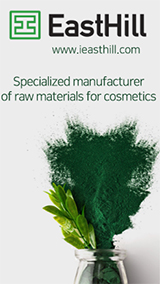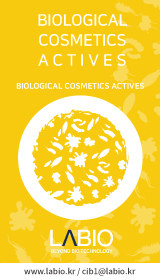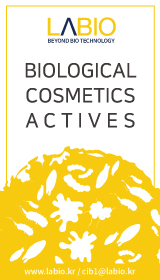
'The devil is in the detail!'
It means that a particular problem or mysterious element is hidden in the details of the matter. It looks easy from a general point of view, but it implies that getting it right will require more time and effort than initially anticipated.
The current address of K-beauty from the perspective of Dr. Sarah Robb, a regular member of The Cosmetic, Toiletry and Perfumery Association (CTPA) in the UK, a consultant, and a safety assessor at NEMO GmbH in Germany. This sentence is the condensation and summary of the desperate requirements for targeting the European market.
“This is what I learned in the process of writing more than 1,000 safety evaluation reports for Korean cosmetics over the past two years and proceeding with UK and EU (CPNP) registration. Although K-beauty already has the innovativeness of its products, its appearance as a trendsetter, and a reputation that matches its value, 'a little unkindness' clearly exists from the customer's point of view. In other words, it means that consumers cannot easily know how to use it in what part and how much. When you experience the irony of encountering the first question, 'How do I use it for my skin?' It is difficult to avoid embarrassment.”

If this 'improvement of unkindness' that Dr. Rob refers to is a consumer-focused issue, the selection and use of more accurate terms and words across all sectors, including formulation and function, is a request to K-Beauty as a safety assessor.
'Skin-Lotion-Ampoule-Mask Pack', which only works in the Korean market and consumers, belongs to the epitome of so-called 'Konglish' that makes British and European consumers tilt their heads.
Along with this, △prohibited and restricted ingredients △confusion and misuse of permitted colorants, preservatives, and UV filters are also types of frequent mistakes made by Korean companies.
“As pointed out, the development of products that meet European and British regulations (based on safety evaluation criteria) and accurate labeling are one of the ways to advance the registration date in the CPNP and the UK. Through the process of sharing and communicating with clients the guidelines derived from workshops with researchers at NEMO GmbH, I would like to guide you on how to enter the UK and European markets quickly and accurately. This visit to Korea is also part of the process of fulfilling that goal.”
Dr. Rob's answer in response to a request for a more 'cold-headed' evaluation of K-beauty indicates to some extent the future direction of K-beauty, which should have practical global competitiveness.
“Consumers in their late teens, at least future and potential customers in the UK and European countries, are open-minded about all cultural content. The same goes for K-beauty, of course. We need to approach them through the establishment and execution of a more delicate and tightly woven strategy than before, rather than simple curiosity or 'burying' by relying on other contents such as K-pop, movies, and dramas. K-beauty can be born as 'another category' when 'kindness and detail from the customer's point of view' are added to the diverse and original products that are difficult to find anywhere in the world and the speed of responding to market changes. ”











